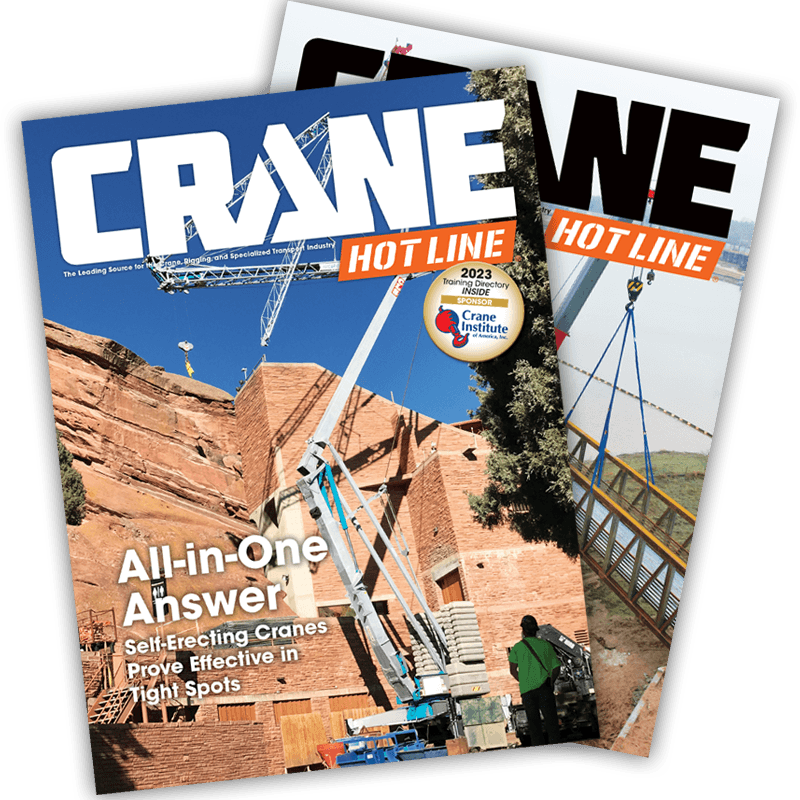Florida Crane Operator Certification Update
 |
| Bruce Whitten |
March 21, 2007 •
360: When did Florida first start moving towards mandatory crane operator certification?
Whitten: Many of us have tried for years to get Florida on the track of crane operator certification. However, approximately three years ago the FCOC started formulating a written draft to be put before the Florida Legislature. Then, we approached the Associated Builders & Contractors (ABC) for their input. Between us, we had several different draft versions ready before we approached a legislator to present it to the Florida Legislature.
360: What do you think benefits of certification in Florida could be?
Whitten: Overall reduction in insurance costs should be the greatest benefit because of the projected increase in safety. One of the greatest problems we face as an industry is the influx of untrained, unqualified people jumping into the seat of a crane. With the correct language in the law that practice should cease. Another benefit is that it likely would bring an influx of applicants to our industry, thereby increasing the overall availability of crane operators to our state.
360: What could be the drawbacks?
Whitten: If the bill doesn't contain the correct language or incentive to correct the situation in Florida, then opportunities will arise that may lead to fraud. The language should read exactly what the certification credentials are.
360: What is your group's goal in helping to draft legislation?
Whitten: Initially we wanted to be on the board that regulated this measure. But we realized that this could take up considerable time when we have businesses to operate. Most importantly, we realized that the overall result would be a safer working environment in Florida. That potentially could lead to a reduction in accidents, which would make our operators a lot happier and further reduce our insurance rates.
360: Do legislators fully understand all the issues surrounding crane operator certification?
Whitten: I think that they are becoming more familiar with the issues. We are constantly in touch with the legislators and committees associated with drafting and implementing this law.
360: Do you feel your group and crane operators in general have a voice in the legislative process?
Whitten: Most definitely! Two years ago we helped ABC to pass an initiative through the Florida Legislature that changed workers compensation insurance. That measure was called “Horizontal Immunity.” Because of that initiative, everyone in Florida is enjoying a reduction in overall costs for Workers Compensation Insurance.
360: Why did Florida decide to start certifying crane operators?
Whitten: If we did not initiate a state measure recognizing certification of crane operators, then local municipalities could enact their own ordinances. This could mean more than 67 different regulations within the state. Many of those might even include licensure and separate insurance regulations within municipalities. That would be a nightmare!
360: What is the current status of the bill?
Whitten: The bill is still undergoing revisions to the wording, but overall it is promising. Like any good law, all sides are giving their input into the bill's language. This should mean that when the bill is finished and becomes law, it will be a good one. I'm keeping my fingers crossed on that!
360: What has happened recently that has started a trend toward mandatory certification in Florida?
Whitten: There was an incident in Miami last year that prompted the local municipality to look into requirements for the industry. They were concerned about safety and after talking with us; they tried to establish some criteria (a crane operator certification bill) by which we could work. They have since started implementing a local ordinance governing cranes, specifically tower cranes.
(See past stories on this here and here.)
360: How can states standardize their certification programs to be sure that all provide an equal level of instruction and training?
Whitten: If states can follow the language of ASME, that will pretty well standardize the industry. When there are deviations, standardization goes right out the window.
360: The bill is scheduled to go into effect on July 1, with enforcement starting on Jan. 1, 2008. Is that too soon? Will the industry be ready?
Whitten: At the very least those dates should be used. However, other states, such a Minnesota, have allowed a two-year process and are just coming into compliance with their measures. Most crane leasing/rental companies already require crane operator certification in Florida because our insurance companies require it, but this will help to bring those others without certification into compliance.
360: How do you think certification programs will change the crane/lift industry in Florida and across the U.S.?


